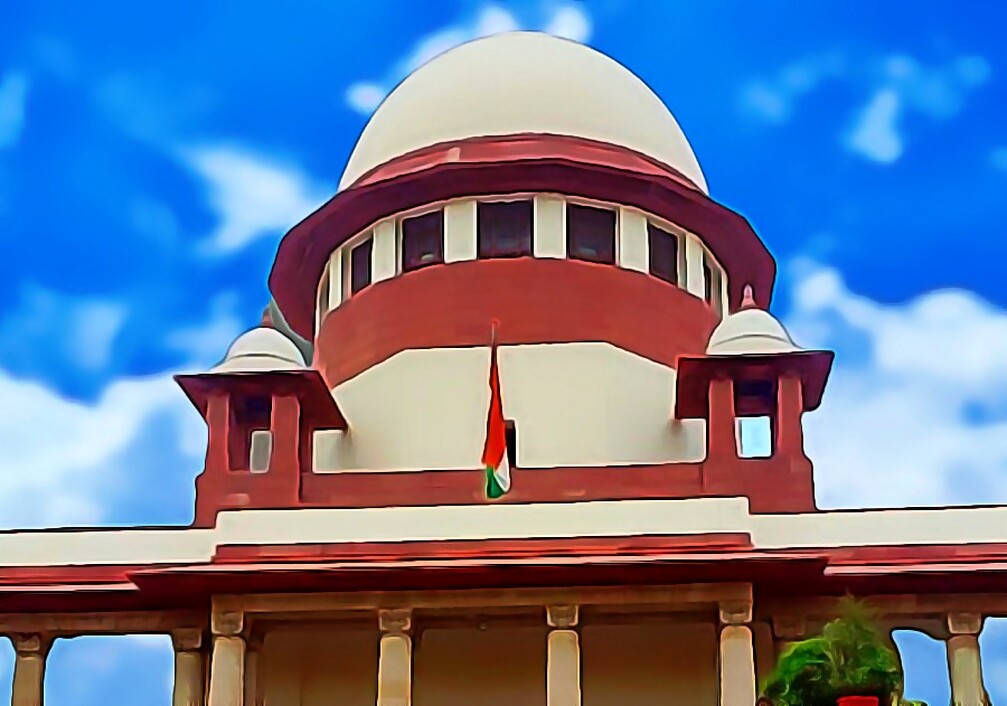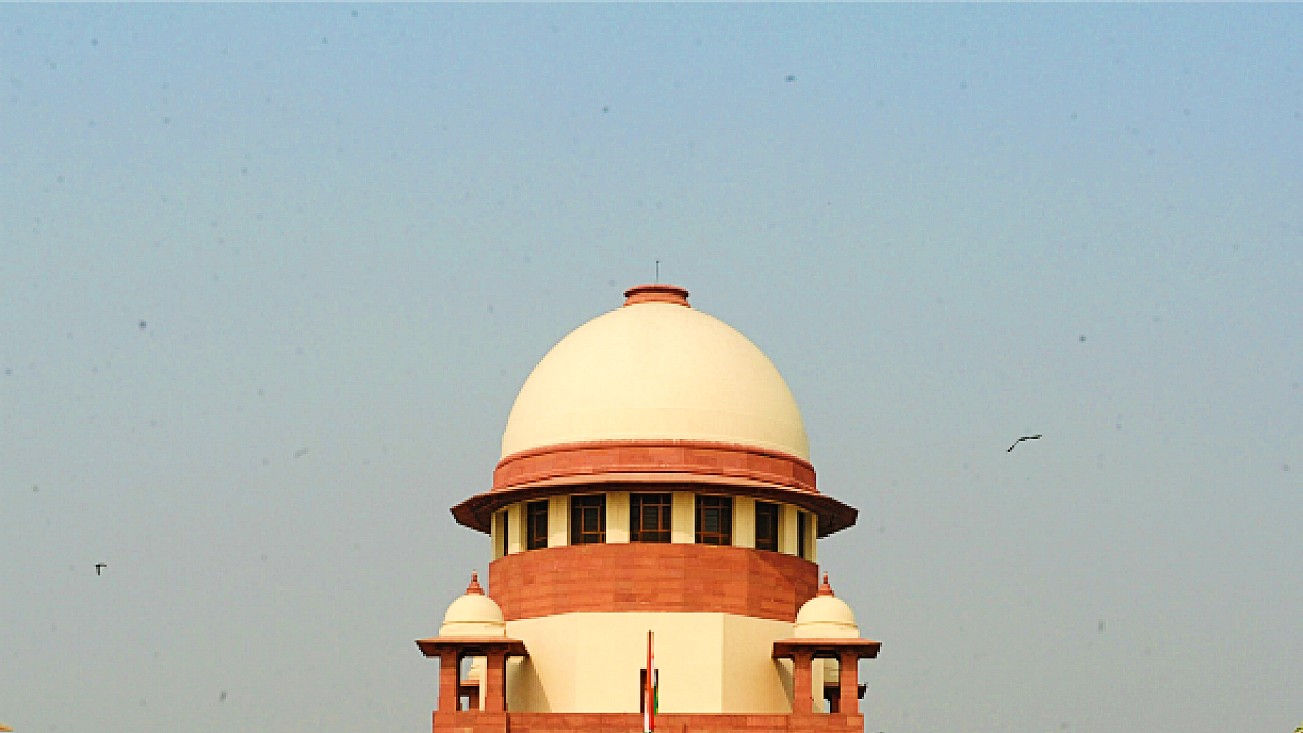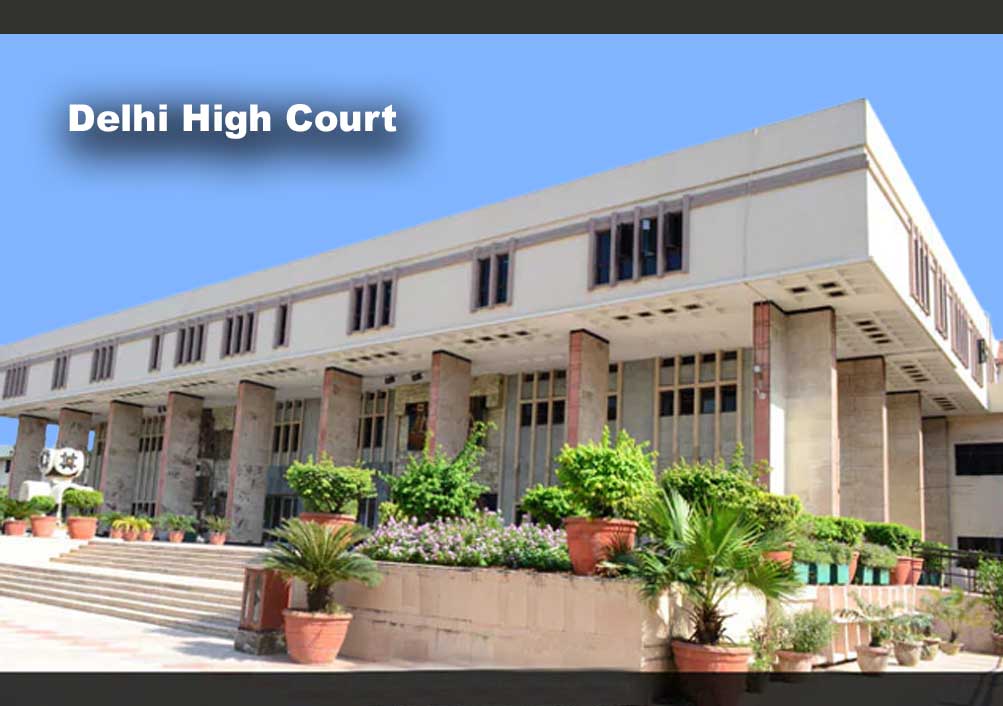In RSA No. 1503 of 1992 (O&M)-PUNJ HC- Compromise/consent decree passed in previous suit can be set aside in subsequent suit only if it is obtained by fraud; Allegations of fraud are to be specific and proved like criminal charge, reaffirms P&H HC
Justice Arvind Singh Sangwan [29-10-2022]

Read Order: Gurdial Singh (since deceased) through LRs and another v. Raja Narinder Singh and others
Monika Rahar
New Delhi, November 14, 2022: Recently, the High Court of Punjab and Haryana has held that as per provisions of Section 77(c) of the Trust Act, 1882, it is provided that Trust is extinguished when the fulfillment of its purpose becomes impossible by destruction of the Trust property or otherwise.
The Bench of Justice Arvind Singh Sangwan also held,
“It is well settled principle of law that a compromise/consent decree passed in a previous suit can be set aside in a subsequent suit only if it is obtained by fraud and the allegations of fraud are to be specific and proved like a criminal charge.”
Challenge in this appeal was laid to the judgment and decree of the Trial Court vide which the suit filed by the respondents/plaintiffs was decreed as well as for setting aside the judgment and decree of the lower appellate Court, whereby the appeal filed by the appellants/defendants was dismissed.
Rattan Singh (owner of disputed estate) was married to one Naurati and out of this wedlock, the appellant (second defendant- Jagir Kaur) was born. Jagir Kaur was married to the first defendant-appellant (Gurdial Singh). After the death of his wife, Rattan Singh performed a second marriage with one Gurdev Kaur.
Vide a gift deed, Gurdial Singh transferred half share of agricultural land in favour of Gurdev Kaur and mutation was sanctioned. Later, Gurdev Kaur died and an FIR was registered against Gurdial Singh under Sections 302, 120-B of the IPC, alleging murder of Gurdev Kaur and Rattan Singh was cited as a witness but he never appeared in Court to support the prosecution case. In 1977, the disputed Trust was created by Rattan Singh, at the instance of the MLA Raja Narinder Singh (first plaintiff). Gurdial Singh was acquitted in the FIR case and the judgment of acquittal attained finality. Via a mutation sanctioned by the order of the Assistant Collector, First Grade, Ludhiana, qua the estate of Gurdev Kaur, transferred land in favour of Rattan Singh and Jagir Kaur in equal share. This order has also attained finality.
Jagir Kaur filed a suit for declaration against Rattan Singh that she be declared owner in possession of land measuring 49 Bigha 5 Biswas. Rattan Singh appeared and filed a written statement admitting the claim of Jagir Kaur. On the basis of the admission statement of Rattan Singh, the Sub-Judge, First Class, Ludhiana passed the judgment decreeing the suit.
The instant suit was filed in 1983 with a prayer that the first five plaintiffs, the Trustees of the Trust (sixth plaintiff), were the owners in possession of 98 Bigha 7 Biswa of land which was owned by Rattan Singh and that the judgment and decree passed in favour of the second defendant (Jagir Kaur) was liable to be set aside, having been procured by fraud and misrepresentation and further the mortgage deed executed by the first defendant in favour of the third and fourth defendants be also declared null and void.
As per grounds in the plaint, it was stated that the Trust was created prior to passing of the decree and the Trustees were not made party to the same. The second ground taken was that the second plaintiff was not served in the said case and never engaged Sh. Harnek Singh, Advocate as his counsel. Third ground was that it was wrongly written in that plaint that Jagir Kaur was the only daughter of Rattan Singh and Gurdev Kaur, whereas she was the daughter of the first wife of Rattan Singh, who had died. It was also mentioned in the plaint that the defendants forcible took possession of the land on procurement of judgment and decree and, therefore, the possession of Gurdial Singh and Jagir Kaur was illegal.
The appellants/defendants contested the factum of gift deed in favour Gurdev Kaur however, it was denied that Gurdev Kaur was murdered as alleged by the plaintiffs. It was also denied that the second plaintiff ever created any Trust regarding property and if there was any Trust Deed, the same was a sham transaction, created to cause loss to the defendants. It was further stated that the judgment and decree of the Sub-Judge, Ludhiana was legal and valid and that Rattan Singh (second plaintiff), engaged Sh. Harnek Singh, Advocate as his counsel and filed written statement and appeared in Court. In the written statement, it was specifically denied that the plaintiff-Trust was ever in possession of the land in dispute, therefore, there was no occasion for the defendants to take its forcible possession from the plaintiffs.
The Trial Court decreed the suit and the appeal filed before the lower appellate Court was dismissed.
Six substantial questions were framed by the appellant's counsel. The first question was whether in a subsequent suit, the Court can examine the validity of the pleadings made in a previous suit in view of the limited scope as per Order 23 Rule 3-A CPC? The second question was whether mere fact that two advocates are practicing in the same office and appearing for the plaintiffs and defendants independently can be a ground to set aside the decree, when the identification of the defendant making the admission is not in dispute?
Thirdly, it was questioned as to whether mere fact that one of the defendants in the previous suit, at one point of time, faced a criminal trial under Section 302 IPC followed by his acquittal by the Court can be a circumstance to set aside the decree passed in his favour? Whether sanctioning of mutation by the Court followed by incorporation and correction in the revenue record amounts to knowledge to the plaintiffs, was the fourth question. Fifthly, it was questioned as to whether in the absence of the terms and conditions of the Trust Deed, being complied with by plaintiff, it becomes non-existent in terms of Section 77(c) of the Trust Act, especially when a right to sell the Trust property is given and no rules are framed?
Lastly, the question was whether the absence of possession, ever given to the Trust, creates a suspicious circumstance that it is a sham and paper document and never acted upon?
After hearing the parties, the Court found merit in the present appeal. The Court observed that both the Courts below re-appreciated the pleadings of the previous suit beyond the scope of Order 23 Rule 3-A CPC. The Court noted that three reasons were assigned to hold that the impugned decree was obtained by fraud, the first reason was that no notice was issued to Rattan Singh; secondly that it was incorrectly mentioned that in the previous plaint that Jagir Kaur was the only daughter of Rattan Singh and Gurdev Kaur and; thirdly that the advocates representing Rattan Singh and Jagir Kaur were practicing in the same office and lastly that the decree required compulsory registration.
In the above respect, the Bench opined,
“It is a well settled principle of law that a compromise/consent decree passed in a previous suit can be set aside in a subsequent suit only if it is obtained by fraud and the allegations of fraud are to be specific and proved like a criminal charge.”
Contrary to the findings recorded by the Courts below to the effect that no notice was issued to Rattan Singh, the Bench opined that notice was issued to Rattan Singh and only thereafter, he appeared through his counsel and filed a written statement.
Another circumstance that the Courts below considered against the appellants was that Gurdial Singh, husband of Jagir Kaur and son-in-law of Rattan Singh, was involved in an FIR under Section 302 IPC and in para 7 of the plaint, it was mentioned that even Rattan Singh was injured in the said incident. However, the Court observed it was a matter of fact that Rattan Singh never appeared as a witness in the criminal trial nor any MLR was produced on record to substantiate the said claim. It was also a matter of fact that Gurdial Singh was acquitted after facing a full length trial and the alleged Trust came into existence in between the period when the FIR was registered and Gurdial Singh was acquitted, the Bench noted . Therefore, the third question of law decided against the respondents/plaintiffs.
Further, the Bench observed that Rattan Singh never appeared as a plaintiff's witness to support the case of the plaintiffs that he voluntarily executed the Trust Deed in favour of the sixth plaintiff or thumb marked the plaint, therefore, the plaintiffs withheld the best evidence of personal knowledge of Rattan Singh in voluntary execution of Trust Deed qua suffering the consent decree and an adverse inference was required to be taken against the plaintiffs.
In this regard, the Court found substance in the arguments raised by senior counsel for the appellants that the Trust Deed was only a sham and paper transaction. Thus, while deciding the fourth question of law in favour of the appellants, the Court observed,
“Both the Courts below have ignored this important aspect of the pleadings as per written statement filed by defendant No. 4-Bank as even replication was filed by the plaintiffs to this written statement.”
Further, the Bench also observed that from the pleadings of the plaintiffs as well as from the admission of PW-2, it was apparent that at no point of time, Rattan Singh transferred the possession of disputed land in favour of the Trust, therefore, there was nothing on record to suggest that after the registration of the Trust, it was implemented by Rattan Singh himself in favour of the Trust. Therefore, Question of law No. 6 was decided in favour of the appellants.
As far as the fifth question was concerned, the Bench observed that yet another circumstance which was ignored by the Courts below was that as per provisions of Section 77(c) of the Trust Act, 1882, it is provided that Trust is extinguished when the fulfillment of its purpose becomes impossible by destruction of the Trust property or otherwise.
“Clause 4 of the Trust Deed itself provides that a right was given to the Trust to sell the property, which is contrary to the very basic purpose of creating the Trust and, therefore, the Trust became non-existent, as it loses the character of a charitable trust, when it was never acted upon by Rattan Singh”, held the Bench while deciding this question in favour of the appellants.
Even otherwise, the Court observed,
“it is admitted case of the parties that appellant No. 2 Jagir Kaur is the real daughter of Rattan Singh and vide mutation No. 4873 sanctioned by the Assistant Collector, First Grade, Ludhiana, half share of the property of Gurdev Kaur was given to Jagir Kaur and half share was given to Rattan Singh. This order has attained finality and the revenue record was changed and the same has never been challenged.”
Thus, the Bench opined the Trust allegedly created by Rattan Singh never came in possession of the suit land and it was never acted upon by Rattan Singh.
“The reasoning given for creating the Trust that Gurdial Singh has committed murder of Gurdev Kaur is not proved as even the judgment of acquittal of Gurdial Singh has not been placed on record by the respondents/plaintiffs though the onus is on them and only the copy of the FIR is placed on record, qua which a inference has been wrongly drawn by both the Courts below”, the Bench opined while also adding that except registration of the said FIR, no reason was given as to why Jagir Kaur, the only daughter of Rattan Singh, was debarred from inheriting the property, when Rattan Singh already gave the suit land to Jagir Kaur by way of impugned consent decree.
In view of the above, the present appeal was allowed and the impugned judgments and decrees, passed by both the Courts below, were set aside.
Sign up for our weekly newsletter to stay up to date on our product, events featured blog, special offer and all of the exciting things that take place here at Legitquest.




Add a Comment